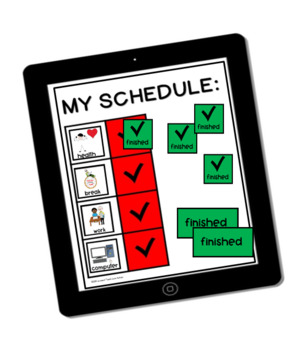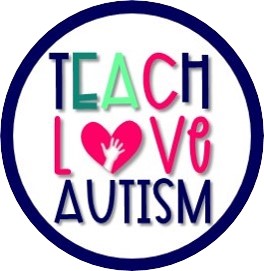A Teacher’s Viewpoint: Things You Should Know About Autism
Sharing is caring!

Let’s start this off very bluntly because I do think there are things you should know about Autism. I am not a medical doctor, nor a behavioral analyst. I am a certified special education teacher with 10 years of experience working with individuals with autism. The thoughts and information I share here are my perspectives of the time I have spent with these students. Some of the information I wish I had known from the beginning and a lot of this I learned from the amazing individuals I have been blessed to work with during my career.
This is not intended to provide you with research or evidence-based best practices with a lot of scientific backing. It is the information I have gained from working with the population. They include things that have worked well that I saw student after student have success with. My hope is by sharing this information that you (a parent, teacher, family member, caregiver, or provider) can take it with you. Then you can apply it when you find yourself working with someone with Autism.
Basic Things You Should Know About Autism

The definition of autism gives a broad idea about that person you may be working with. Please note, every person is unique, different, and has strengths and weaknesses regardless of any diagnosis or label. Autistic individuals deserve respect and understanding in those strengths and weaknesses just as we all do.
Autism is a developmental disorder that is characterized by difficulties in social interactions and complexities in non-verbal and verbal communication.
Further, individuals on the spectrum are prone to repetitive and restricted behaviors.
What is autism spectrum disorder (ASD)? Times of Autism. (n.d.). Retrieved March 6, 2022, from https://www.timesofautism.com/what-is-autism/
signs of autism, typical characteristics, difficulty with communication, language, and behavior
Many individuals with Autism struggle to understand social norms, effective communication, and don’t handle changes well. They love routine and completing things in a repetitive manner. This is a great asset to their personality throughout life. Another characteristic is that they have sensory sensitivity. This means loud noises, crowded places, and overstimulating environments can be difficult to navigate.
Setting Routines and Schedules

As mentioned before, Autistic individuals typically thrive off of routine, structure, and schedules. I have also found this true in my classroom. Having a set way to do something that is routine and predictable makes us all feel comfortable. So, having clear expectations, a schedule, and a plan of how events will go are helpful when working with individuals with Autism. Also, preparing them for a change when it does occur is a great lesson to help ease the anxiety that changes cause. We all would love to know when something we expect to happen is going to change, right?
Many of my past students used a visual schedule that provided them with a list of the daily activities they would encounter during the day. This could also be a great strategy to use in the home or out in the community to also provide that stability for them. Visual schedules often have images or pictures connected to the information but, a simple checklist written or typed out could also be a great resource.
Behavior is Communication
In my opinion, this is the biggest takeaway from all the information I’m sharing. This is another thing you should know about autism. The interesting thing is that it applies to all of us and not just one group of people in general. Human behavior is the entire range of what people do, including thinking and feeling. And there are reasons why we do, think, or feel that way. This is known as a function of behavior.
When you can determine why someone is behaving in a certain way you can understand how to help them if that behavior needs to change. A young child with limited verbal skills will point to things or even cry to get the attention and get the item they want. Try to think more about why the child is behaving that way instead of immediately categorizing it as a problem behavior.
Many times, Autistic individuals struggle with communicating, and their behaviors are misunderstood. As a parent, teacher, or provider I believe it is our job to assist them with finding their means of communication. This could be verbal, using a communication device, or even sign language. Oftentimes, speech therapy can be widely beneficial to support individuals with communication.
Teaching Strategies that Support Strengths

In my own classroom, I have used some very unique teaching methods to support my students. Some have included kinesthetic movement, music, and real-world experience. They may not sound that different but, the same traditional instructional strategies don’t always work, and being flexible when instructing autistic individuals is important. There is a lot of research about different methods and what works best, but again I will say that looking at the individual and seeing what works best for them is the best method.
How can you know what those are? I often would look at a student’s strengths and interests. If they were interested in the music we would create songs to teach the content. If they liked being active we would create actions or movements that connected with the information. Some of us, learn better by doing, and using a real-world experience can provide the most value. For example, I could teach a student how to cook something by reading a book, or we could go in the kitchen and make it. Which strategy would you learn the skill from better? It may take time to find what strategy is best, but once you do, using it can be important in helping that individual learn and maintain skills.
My Final Thoughts You Should Know about Autism
In conclusion, I am no expert in this field, and I love that I am constantly learning new things. There are many ideas and perspectives on Autism and I try to stay open to all of them. Ultimately, I believe we need to find a way to strengthen our awareness about individuals with Autism to support them. If that means, thinking outside the box and doing something I never thought I would, I embrace it. I am thankful for the time and experiences I have gained by working with these individuals.
If you are looking for more information try taking a look at the books I’ve used! Here is a link to my Amazon storefront with some great resources!



